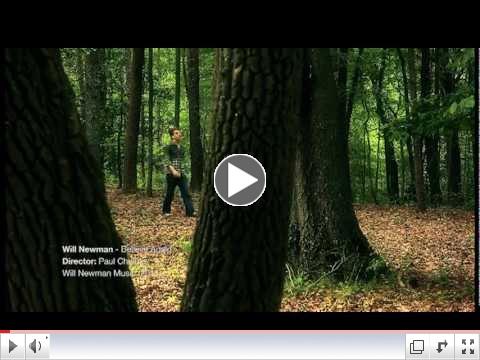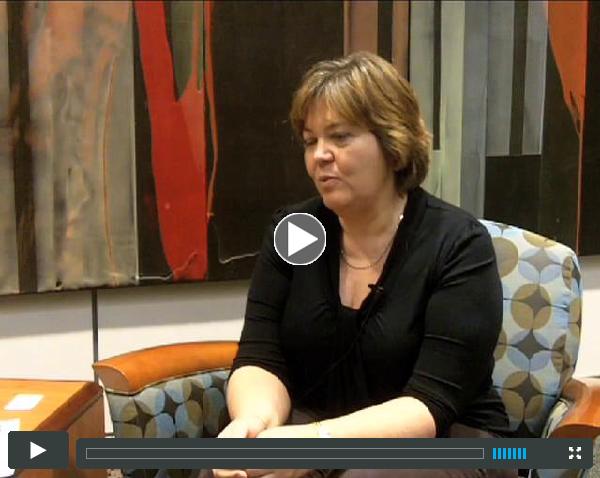|
BE SOCIAL
| |
__________________

Join our Cause
__________________

|
|
RESEARCH FUNDING | |
CLL Global is currently accepting Letters of Intent (LOI) from researchers who wish to apply for funding to conduct CLL research. Interested applicants must electronically submit an LOI by Friday, September 23, 2011. Click here for more information and to access the relevant forms and guidelines. |
| EXTRA! EXTRA! | |
 If you are not currently receiving hard copies of the CLL Global's newsletter, CLL Research Momentum, but would like to, please email us your full mailing address. If you are not currently receiving hard copies of the CLL Global's newsletter, CLL Research Momentum, but would like to, please email us your full mailing address.
|
|
FEATURED VIDEO | |

In last month's issue of Tidbits we introduced you to Will Newman, a high school student with amazing musical talents. He has recorded a holiday album and plans to donate the proceeds from album sales to CLL Global. The album is in the final stages of production and is almost ready for purchase. You can visit Will's website for updates and more information on how to purchase the album. In the meantime, you can enjoy the music video for his original song "Believe Again".
 | | Believe Again Video |
|
|
QUESTIONS/COMMENTS? | |
Is there something specific you want to read and learn about?
Let us know if you have any comments or suggestions for improvement.
You are the reason CLL Global exists, and we want to hear from you.
info@cllglobal.org |
|
DONATE NOW!! | |

|
|
|
|
Greetings!
Change is the only constant, and things sure are changing in CLL research. This month's Tidbits highlights some of the shifts taking place as we continue to piece together the CLL puzzle. |
|
| PRESIDENT'S CORNER: opinions & reports from Dr. Michael Keating | |
Age of Revolution
Revolution is defined as a dramatic or fundamental change in ideas. This year has featured many political revolu tions, but we are also experiencing a CLL research revolution. The majority of clinical CLL research has been carried out in patients under the age of 65 while the average age of CLL diagnosis in the United States is 72. This means that almost all CLL research is being conducted in less than half of the patients who are in need of treatment. Accordingly, the research results cannot routinely be applied to all patients with CLL. tions, but we are also experiencing a CLL research revolution. The majority of clinical CLL research has been carried out in patients under the age of 65 while the average age of CLL diagnosis in the United States is 72. This means that almost all CLL research is being conducted in less than half of the patients who are in need of treatment. Accordingly, the research results cannot routinely be applied to all patients with CLL.
Years ago, we adopted an approach that "old" people (arbitrarily defined) would not be able to tolerate treatments given to younger patients. Indeed, fludarabine, cyclophosphamide + rituximab (FCR), the current "gold standard" of CLL treatment, has not proven to be more beneficial than just FC for the "older" population. This further justifies the need for innovative treatment in "older" patients. But what age is defined as older? There are young 80 year olds and old 65 year olds. Other illnesses called co-morbidities must be considered to predict the likelihood of patient tolerability to various treatments.
At last we are seeing emphasis on research in patients over the age of 65. The availability of newer, better tolerated therapies has permitted this shift. Tyrosine kinase inhibitors such as CAL-101 and PCI-32765 are being studied as initial therapy for older patients. These drugs inhibit the enzymes that encourage growth of the CLL cells. Also, lenalidomide has proven very effective in older patients. (We will discuss these results in greater detail in an upcoming issue of Tidbits.) Patients in their 70s are now being offered stem cell transplantation from family members, unrelated donors or cord blood.
Patients who previously could not be offered investigational treatment are now thriving. Recently, I received a note from a 91-year old lady. She presented to us at 82 with an advanced form of mantle cell lymphoma very closely related to CLL. We offered her an investigational regimen, and she has been in complete remission ever since. The note emphasized that she was fully active, independent and recently passed her driving test.
The fundamental message of the CLL research revolution is that we need to throw out prejudice against age. Many "older" patients are in excellent general physical condition and looking forward to living for long periods. Let's continue to extend the life of our patients so that regardless of their age on paper, they can feel young inside. |
| CLL EDUCATION | |
Viruses May Play a Role in CLL development
Viruses are linked to the development of some cancers. For example, HPV is a virus which is linked to the development of cervical cancer. In 2006, the food and drug administration (FDA) approved the HPV vaccine for the prevention of cervical
 | |
Watch Dr. Heslop explain how viruses like EBV and others may play a role in the fight against CLL by using the viruses as signals to identify and attack tumorous cells. |
cancer. Researchers, including Dr. Helen Heslop (Baylor College of Medicine), are looking at the Epstein - Barr virus (EBV) and other viruses as potential targets for vaccination against CLL.
EBV causes mononucleosis (mono), which affects 95% of all Americans at some point during the course of their lives. Once infected, the EBV virus stays in the body for life, usually in a dormant state. However, if an individual has a weakened immune system (such as immune compromised CLL patients or transplant patients) the virus can become re-activated. EBV may also be associated with the development of non-Hodgkin lymphoma (NHL) or Hodgkin lymphoma.
EBV does not cause CLL or lymphoma. However, it is hypothesized that some people may already have a genetic predisposition for cancer, and EBV or other viruses may trigger the evolution of the cancer. This area of research for CLL is still in the beginning stages and there are still more questions than answers.
Click here to read about Dr. Heslop's CLL Global project.
Click here to read another article about EBV (on page 2 of the newsletter). |
| CLL IN THE NEWS | |
CARs drive into the spotlight
Last month chimeric antigen receptors (CARs) shot into the spotlight with reports from all major media outlets. We responded to several inquiries about the new therapy with featured commentary from Dr. Michael Keating about the breakthrough science, and Dr. William Wierda provided answers to the frequently asked questions.
Click here to learn more. |
| THANK YOU FOR SUPPORTING US! | | |
|
Of course, we will continue to inform you on the progress and changes taking place in CLL research. Continue to spread the word about CLL. Together we can see the revolution through.
Sincerely,
CLL Global Research Foundation
|
|
|